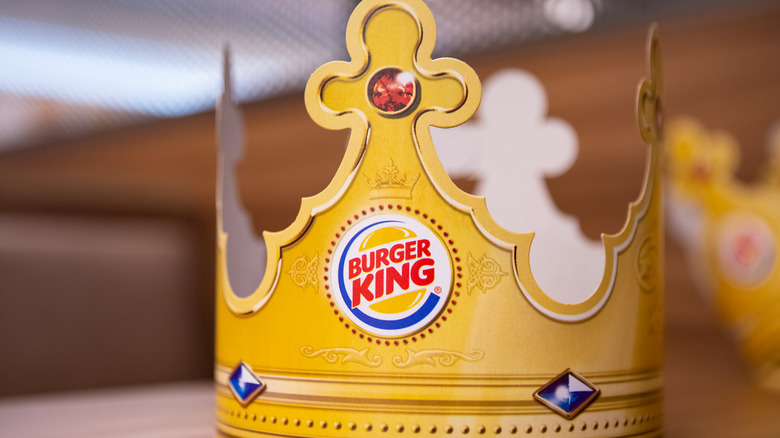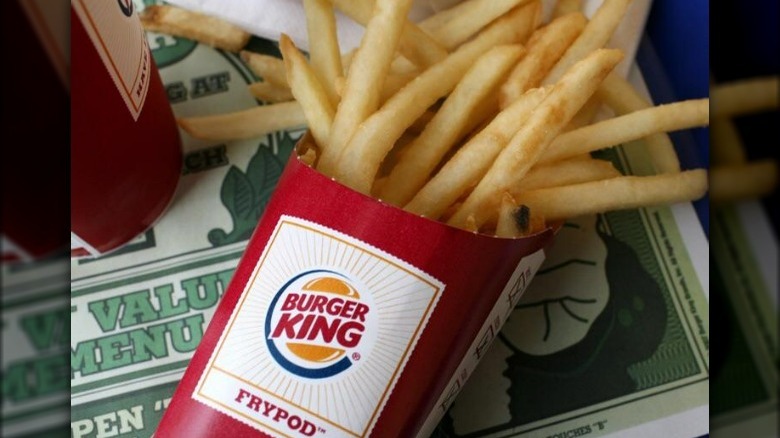The Truth About Burger King's Controversy With Apple
About a year ago, Burger King made a move toward more eco-friendly packaging. According to Food & Wine, Burger King wanted to reduce its single-use paper and plastic products, including utensils, wrappers, straws, lids, and napkins.
This sustainability effort also included Burger King's fry sleeves, named Frypods. These sleeves fit perfectly in your car's cup holder, so you don't have to worry about your fries spilling while you drive. Earlier versions of the Frypod even included vented sides, says Brand Eating, so your fries wouldn't get soggy. After all, if fast food restaurants make you crispy fries, you should get to enjoy them in that state, right?
As customers, this likely all sounds great. Crispy french fries, conveniently shaped packaging, easier to recycle. Win, win, win, right? Well, not everyone agrees. Tech giant Apple, for one, seemed to feel that its toes were being stepped on. That's right: Apple and Steve Jobs may or may not have a bit of beef (pun intended) with one of America's favorite fast food chains.
Does the Frypod sound too much like the iPod?
Apple's potential problem with Burger King's fry sleeve boils down to the Frypod name itself. Some people have speculated that Frypods were named as such to "[capitalize] on the iPod's name and success," per iLounge.
However, worth noting is that both products are well-established. According to Mac World, the Apple iPod was released in late 2001, while Burger King's Frypod was trademarked in 2007 (via Justia Trademarks). Despite the six-year difference, do the two really share too close of a name?
Furthermore, Burger King is already plenty successful on its own. While Burger King will never beat McDonald's — nor Apple, for that matter — in sales, the chain is still worth more than $7 billion and consistently ranks within the top five most popular fast food chains in the U.S. (via Visual Capitalist). Still, comparing the Frypod to the iPod is like comparing apples and oranges. Actually, it's far more ridiculous.
So, sure, the names sound similar, but some might find it wild to believe that Apple sees Burger King as a threat, especially since the two are in entirely different markets.

